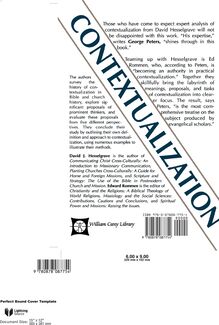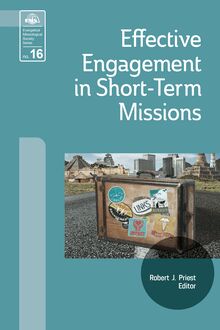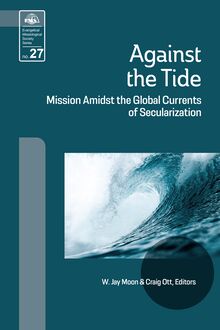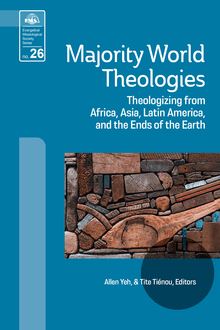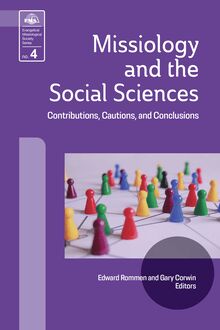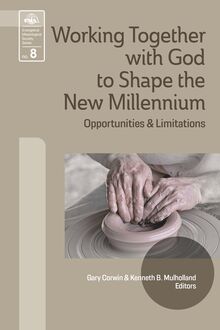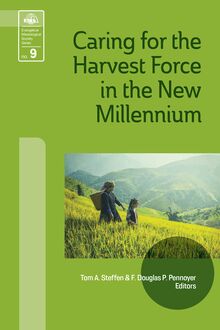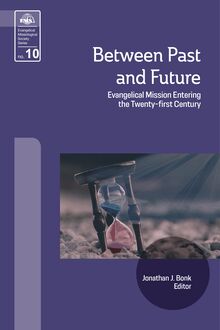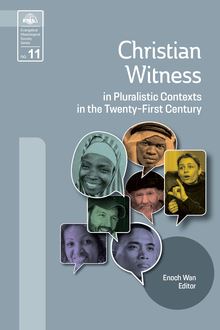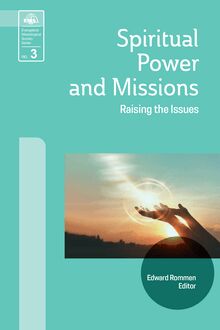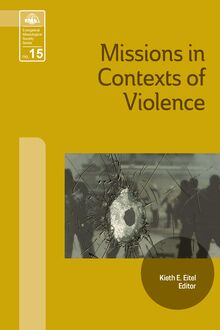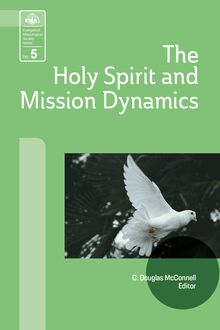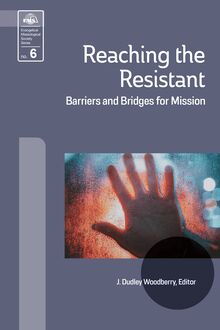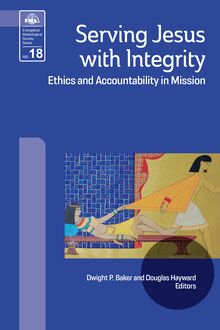-
 Univers
Univers
-
 Ebooks
Ebooks
-
 Livres audio
Livres audio
-
 Presse
Presse
-
 Podcasts
Podcasts
-
 BD
BD
-
 Documents
Documents
-
- Cours
- Révisions
- Ressources pédagogiques
- Sciences de l’éducation
- Manuels scolaires
- Langues
- Travaux de classe
- Annales de BEP
- Etudes supérieures
- Maternelle et primaire
- Fiches de lecture
- Orientation scolaire
- Méthodologie
- Corrigés de devoir
- Annales d’examens et concours
- Annales du bac
- Annales du brevet
- Rapports de stage
La lecture à portée de main
Vous pourrez modifier la taille du texte de cet ouvrage
Découvre YouScribe en t'inscrivant gratuitement
Je m'inscrisDécouvre YouScribe en t'inscrivant gratuitement
Je m'inscrisEn savoir plus
Vous pourrez modifier la taille du texte de cet ouvrage
En savoir plus

Description
Sujets
Informations
| Publié par | William Carey Publishing |
| Date de parution | 15 septembre 1996 |
| Nombre de lectures | 0 |
| EAN13 | 9780878089925 |
| Langue | English |
Informations légales : prix de location à la page 0,0550€. Cette information est donnée uniquement à titre indicatif conformément à la législation en vigueur.
Extrait
MISSIOLOGY and the Social Sciences
OTHER TITLES IN EMS SERIES
#1 SCRIPTURE AND STRATEGY; The Use of the Bible in Postmodern Church and Mission, by David J. Hesselgrave”
#2 CHRISTIANITY AND THE RELIGIONS: A Biblical Theology of World Religions, Edward Rommen and Harold Netland, Editors
#3 SPIRITUAL POWER AND MISSIONS: Raising the Issues, Edward Rommen, Editor
MISSIOLOGY and the Social Sciences
Contributions, Cautions and Conclusions
Edward Rommen and Gary Corwin Editors
Evangelical Missiological Society Series #4
Copyright 1996 by Evangelical Missiological Society
All Rights Reserved
No part of this publication may be reproduced, stored in a retrieval system, or transmitted in any form or by any means–electronic, mechanical, photocopy, recording, or any other–except for brief quotations embodied in critical articles or printed reviews, without prior permission of the publisher.
EMS Series #4
Published by William Carey Library 1605 E. Elizabeth Street Pasadena, CA 91104 | www.missionbooks.org
William Carey Library is a ministry of Frontier Ventures Pasadena, CA | www.frontierventures.org
Digital eBook release Primalogue 2016 ISBN: 978-0-87808-992-5
Library of Congress Cataloging-in-Publication Data
Missiology and the social sciences: contributions, cautions, and conclusions / Edward Rommen and Gary Corwin, editors. p. cm. -- (Evangelical Missiological Society series: no. 4) Includes bibliographical references. ISBN 0-87808-378-2 (alk. paper) 1. Missions--Theory. 2. Christianity and culture. 3. Religion and the social sciences. I. Rommen, Edward, 1947-. II. Corwin, Gary, 1948- . III. Series. BV2063.M55 1996 266’.001’5--dc20 96-34634 CIP
CONTENTS
PREFACE
David J. Hesselgrave
PART I MISSIOLOGY AND THE SOCIAL SCIENCES
1. Introduction: An Appeal for Balance
Michael Pocock
2. Sociology and Missiology: Reflections on Mission Research
Gary R. Corwin
3. The Contribution of Cultural Anthropology to Missiology
Norman E. Allison
4. Prototype Semantics: Insights for Intercultural Communication
K A. McElhanon
5. Pychology and Missions: A History of Member Care in Cross-Cultural Ministry
Brent Lindquist
6. The Contribution Of Technology To Missiology
Ron Rowland
7. Economics and Mission
Andreas J. Köstenberger
PART II USE AND MISUSE OF THE SOCIAL SCIENCES
8. A Critique of Charles Kraft’s Use/Misuse of Communication & Social Sciences in Biblical Interpretation & Missiological Formulation
Enoch Wan
9. Use and Misuse of the Social Sciences: Interpreting the Biblical Text
Robertson McQuilkin
10. The Social Sciences and Missions: Applying the Message
Paul G. Hiebert
PART III CONCLUSIONS
11. Conclusions
Edward Rommen
End Notes
PREFACE
David J. Hesselgrave 1
The missiological enterprise is rooted in three types of source materials-God’s revelation in Holy Scripture and the church creeds and theological systems based on that revelation; the social and behavioral sciences that help us understand the world’s peoples and their cultures, belief systems and customs; and past and present missionary experience with its successes and failures. To explore any missiological issue without seeking out and examining relevant data from all three of these repositories of information is to truncate missiological inquiry and place both missionary theory and practice in jeopardy.
Moreover, since the mission with which we are concerned and in which we are involved is first and foremost God’s mission and not our own, in all our missiological deliberations priority must be given to God’s special revelation in the Bible. There is no denying the fact that over the last century and more-and especially during the last half of the twentieth century-missions have benefitted greatly by involvement in, and interaction with, research in such areas as linguistics, anthropology, sociology, communication, comparative religions, and psychology. And there is no denying the fact that the study of missions history, missionary biography, church growth and the like has yielded insights that have served to steady the course of contemporary missionary endeavor and helped set the agenda for missions in the future.
At the same time, when we define missiology as the “science of mission,” we must remember that “science” in this case is being used in the more classical sense of that body of knowledge related to the understanding and carrying out of our missionary task in the world. Though much information that results from human experience and reflection is valuable in missionary endeavor, only to the degree that the decisive and determinative desideratum of missionary knowledge emanates from, or conforms to, the Divine Word as we have it in Christ and Scripture can the “science of Mission” be truly Christian .
That brings us to the significance of the present volume. Almost a decade ago in doing a thematic content analysis of the major articles appearing in the International Review of Missions and the Evangelical Missions Quarterly between 1973 and 1986 I discovered something rather surprising. Out of 949 articles in the IRM , a total of 145 articles were focused on theological themes, 34 on missions history, and only 14 on the contributions of the social sciences. In the EMQ the emphasis was very different. Out of 604 articles a total of 8 were focused on missions history, 45 on theological themes, and 38 on the contributions of the sciences ( Today’s Choices for Tomorrow’s Mission , Zondervan: 1988, pp. 141-42). It goes beyond our present purpose to attempt an explanation for this rather astounding difference in the rootage of missions/missiology as reflected in these two periodicals, but it is important that we take note of the relatively heightened dependence upon social science concerns on the part of evangelical editors and writers. An acquaintance with the subject matter of evangelical literature on the missionary enterprise that has appeared over the last forty or fifty years supports the conclusion that this interest borders on fascination.
As one whose writings have drawn rather extensively from these sciences, I am not inclined to disavow the fact that much of what has been learned about the world’s peoples-to say nothing about that which has been borrowed from modern technology-is of great significance to missions. One is not well-advised to bite the hand that feeds us. On the other hand, one is well-advised to examine the food itself and decide whether or not it is wholesome, and in what proportions.
It is justifiable then, to review some of the ways in which the social sciences contribute to the missionary enterprise. It is also justifiable-no, it is incumbent upon us-to raise questions concerning matters of balance and priority. The present volume does both of these things. And because it does them so insightfully, lucidly and masterfully, we owe a special debt of gratitude to the editor, Edward Rommen, and the various contributors. And because the subject matter is so timely we commend this volume to the careful reading and serious study of every student of the Christian mission.
PART I MISSIOLOGY AND THE SOCIAL SCIENCES
1 INTRODUCTION: AN APPEAL FOR BALANCE
Michael Pocock 1
The principle reason for the existence of any professional society is to serve as a forum for the exchange of ideas among its members. This is true of the Evangelical Missiological Society (EMS), even though its constituency is intentionally broader than professional missiologists. The EMS seeks to unite in dialogue all who wish to think seriously about evangelical missiological concerns, whether they are pastors, field missionaries, mission executives, or researchers and professors of missions. 2 We all need to interact because we are inextricably bound together in the great enterprise of world evangelization and the missionary endeavor designed to achieve it. This paper is a call to enter our dialogue about missiology and the social sciences with objectivity, balance, and grace.
We shall look at the relationship between the social sciences and missiology. Presenters with a particular expertise in the various branches of the social sciences will address the society, explaining the scope and limitations of their discipline in informing the science of missiology. This is a good time to explore the theme because, as we shall see, among the thinkers and doers of ministry and missions, there are both those who practically discount the value of the sciences for missions and also those who make uncritical use of them.
Spiritual warfare advocates (a term I will use to include advocates of power encounter, territorial spirits, and spiritual mapping) believe they are rejecting what has become a predominantly scientific approach to missions in favor of supernatural dynamics. Concerned about the resistance that characterizes many of the last unreached peoples, they have concluded that demonic opposition has caused this phenomenon and that identification and binding of regional controlling spirits is the answer. This concept can be seen in the AD 2000 Prayer Track led by Peter and Doris Wagner and is fundamental to the “Light the Window” campaign in which one hundred “Gateway Cities” in the 10-40 window have been targeted for prayer visitation. 3
Among missiologists inside and outside the EMS, the above mentioned developments find both enthusiastic support and emerging concern. 4 The EMS does not wish to polarize protagonists on either side, but calls all participants to constructive dialogue. As evangelicals, we share certain convictions. We all want to work for the completion of the Great Commission realize that unreached peoples generally constitute resistant groups believe Satan actively suppresses belief among non- Christians are eager for any breakthrough possible understand our real weapons are primarily spiritual believe the written Word of God should set the parameters for our belief a
-
 Univers
Univers
-
 Ebooks
Ebooks
-
 Livres audio
Livres audio
-
 Presse
Presse
-
 Podcasts
Podcasts
-
 BD
BD
-
 Documents
Documents
-
Jeunesse
-
Littérature
-
Ressources professionnelles
-
Santé et bien-être
-
Savoirs
-
Education
-
Loisirs et hobbies
-
Art, musique et cinéma
-
Actualité et débat de société
-
Jeunesse
-
Littérature
-
Ressources professionnelles
-
Santé et bien-être
-
Savoirs
-
Education
-
Loisirs et hobbies
-
Art, musique et cinéma
-
Actualité et débat de société
-
Actualités
-
Lifestyle
-
Presse jeunesse
-
Presse professionnelle
-
Pratique
-
Presse sportive
-
Presse internationale
-
Culture & Médias
-
Action et Aventures
-
Science-fiction et Fantasy
-
Société
-
Jeunesse
-
Littérature
-
Ressources professionnelles
-
Santé et bien-être
-
Savoirs
-
Education
-
Loisirs et hobbies
-
Art, musique et cinéma
-
Actualité et débat de société
- Cours
- Révisions
- Ressources pédagogiques
- Sciences de l’éducation
- Manuels scolaires
- Langues
- Travaux de classe
- Annales de BEP
- Etudes supérieures
- Maternelle et primaire
- Fiches de lecture
- Orientation scolaire
- Méthodologie
- Corrigés de devoir
- Annales d’examens et concours
- Annales du bac
- Annales du brevet
- Rapports de stage
